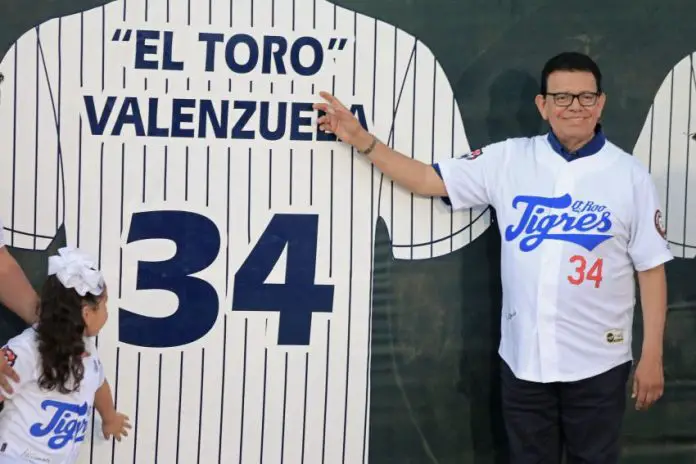Fernando Valenzuela, the baseball pitcher from Sonora who won Major League Baseball’s Rookie of the Year Award in 1981 and sparked a phenomenon known as “Fernandomania” among Los Angeles Dodgers fans, died on Tuesday in Los Angeles. He was 63.
The Dodgers said that Valenzuela died at a Los Angeles hospital but did not state the cause.
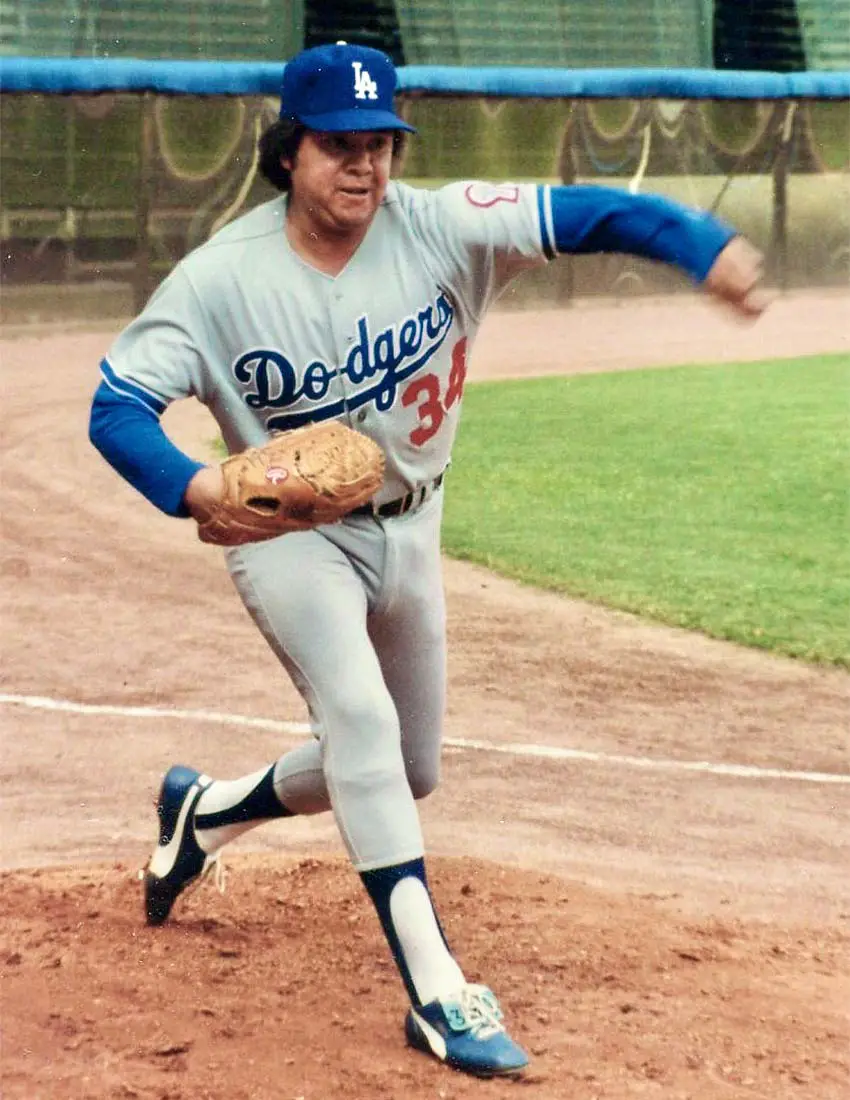
The Sonora native — widely considered Mexico’s best-ever baseball player — stepped down from his job as a commentator on the Dodgers’ Spanish-language television broadcast last month, triggering concerns about his health. He was reportedly hospitalized earlier this month.
Born in 1960 in Etchohuaquila, a small town in the municipality of Navojoa, Valenzuela quickly rose to fame as a 20-year-old pitcher for the Los Angeles Dodgers in the 1981 MLB season.
“In 1981, beginning with a 2-0 Opening Day shutout of the Houston Astros in an emergency start, he went on an unprecedented career-opening run, with complete games in his first eight career starts — five of them shutouts,” the Dodgers said in a press release announcing Valenzuela’s death.
“… Immediately, Fernandomania became a fan sensation,” the team added.
Valenzuela’s Earned Run Average, or ERA, during his early-career eight-game winning streak was an exceptional 0.50.
His impressive performances in the 1981 season earned Valenzuela the MLB Rookie of the Year Award and the Cy Young Award, given to the best pitchers in the two leagues that together constitute Major League Baseball. No other player has won the two awards in the same year.
As private, shy and quiet as he was, Fernando Valenzuela loved people, and he touched the lives of fans, friends and family. On the mound, he was beyond confident and made an immeasurable impact. On the person and the pitcher: https://t.co/9WIAod7hPq
— Dodger Insider (@DodgerInsider) October 23, 2024
Valenzuela — especially beloved by Latino fans of the Dodgers — went on to play 11 seasons at Dodger Stadium before playing for five other MLB teams, including the Los Angeles Angels and the Philadelphia Phillies. He played his last MLB game for the St. Louis Cardinals in 1997.
During a lengthy and illustrious career, Valenzuela was a World Series champion twice (1981 and 1988), played in the Major League Baseball All-Star Game every year between 1981 and 1986, won the Gold Glove Award for fielding in 1986 and the Silver Slugger Award twice (1981,1983) for his batting exploits.
He was a guest at a White House luncheon hosted by U.S. President Ronald Reagan during a visit by then Mexican president José López Portillo in 1981 and appeared on the cover of Sports Illustrated in May 1981 alongside the headline “Unreal!”
The popular left-handed pitcher was well known for his unique windup and his screwball pitches.
Stan Kasten, president and CEO of the Los Angeles Dodgers, said Tuesday that Valenzuela “is one of the most influential Dodgers ever and belongs on the Mount Rushmore of franchise heroes.”
“He galvanized the fan base with the Fernandomania season of 1981 and has remained close to our hearts ever since, not only as a player but also as a broadcaster,” he said.
“He has left us all too soon. Our deepest condolences go out to his wife Linda and his family,” Kasten said.
On social media, the Dodgers’ Twitter account posted an image showing Valenzuela at different stages of his life. Five words appear at the top of the image: “Fernandomanía por siempre. Fernandomania for ever.”
Veteran Dodgers announcer Vin Scully told The Los Angeles Times in 1991 that “Fernandomania bordered on a religious experience.”
“Fernando being Mexican, coming from nowhere, it was as though Mexicans grabbed onto him with both hands to ride to the moon,” said the now-deceased sportscaster.
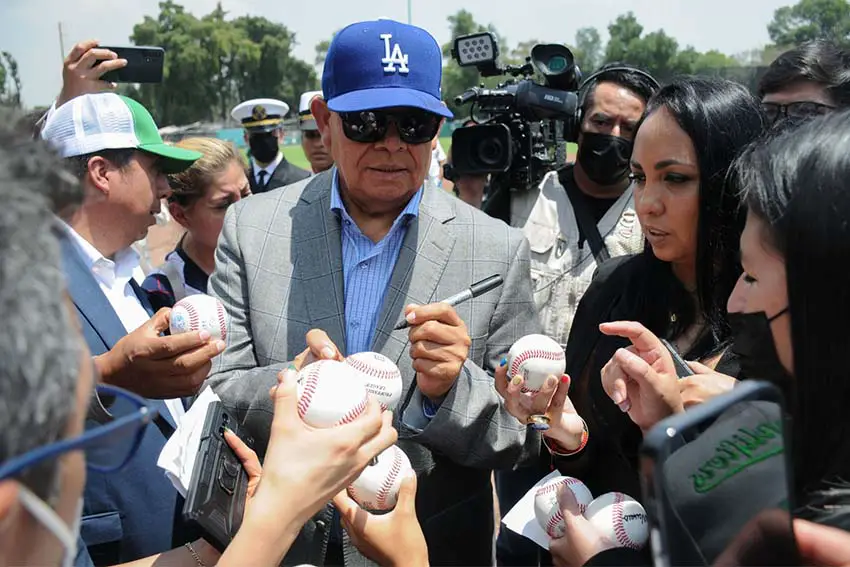
Valenzuela’s “spectacular start” to his career “ignited the ‘Fernandomania’ phenomenon,” The New York Times reported.
“His games filled Dodger Stadium and ballparks around the league. Merchandise sales rose, television ratings spiked, and media attention, from journalists in both the United States and Mexico, peaked,” the Times said.
“The ABBA hit ‘Fernando’ would play as he warmed up on the mound,” noted the Associated Press.
The Dodgers inducted Valenzuela as part of the inaugural class of the Legends of Dodger Baseball in 2018 and retired his number — 34 — on August 11, 2023, according to the team’s press release on Tuesday.
“Valenzuela has been named to numerous Halls of Fame, including the Hispanic Heritage Baseball Museum and Caribbean Baseball Hall of Fame. He was very active in supporting various team and Latino initiatives in the community. He was honored for his work in [the] Reviving Baseball in Inner Cities Program with their Lifetime Achievement Award in 2007,” the statement added.
The baseball legend, one of fewer than 150 Mexicans who have played MLB, is survived by his wife Linda, four children and seven grandchildren, according to the Dodgers.
On this day in 1981, Fernando Valenzuela led the Dodgers to a win in Game 3 of the World Series against the Yankees with a complete game performance. pic.twitter.com/fMQWbxpqjd
— Los Angeles Dodgers (@Dodgers) October 23, 2024
The Dodgers’ social media account posted tributes to the legendary pitcher after his death was announced, including this montage of footage of him pitching in Game 3 of the 1981 World Series.
A remarkable life
Valenzuela was the youngest of 12 children born to Avelino Valenzuela and María Anguamea, who had a small farm in Etchohuaquila, a rural community known as a ranchería in Mexico.
“Farmland and the baseball diamond were the places that marked the childhood of the ex-player,” according to the Reforma newspaper.
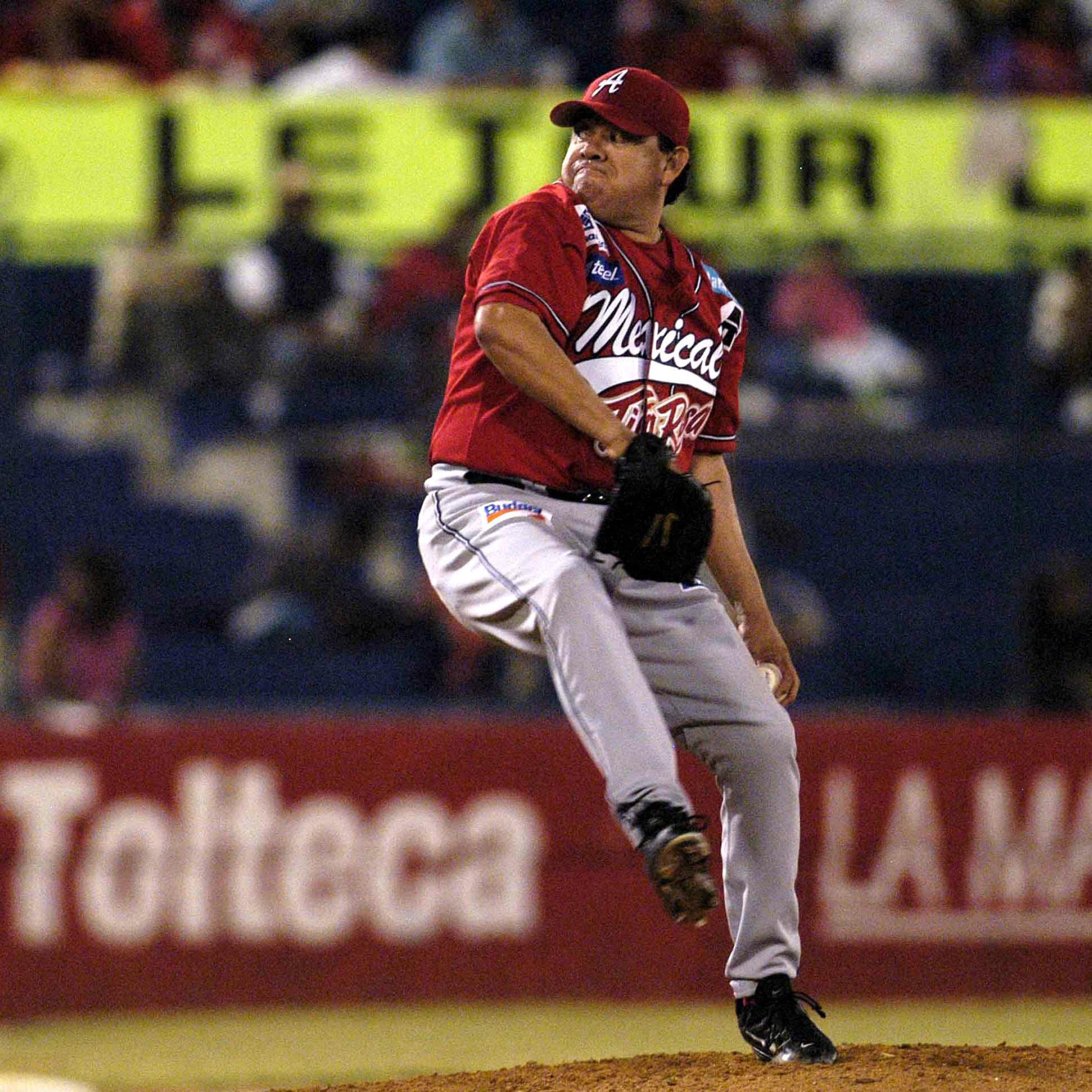
Valenzuela’s birthplace was part of the long version of his nickname: “El Toro de Etchohuaquila,” or “The Bull of Etchohuaquila.” The short version was “El Toro” or simply “Toro.”
Valenzuela started his professional baseball career in Mexico, playing for teams such as the Cafeteros de Tepic – which gave him his first contract at age 17 – the Leones de Yucatán and the Tuzos de Guanajuato.
Legendary Dodgers scout Mike Brito traveled to Guanajuato in the late 1970s to watch a shortstop, Ali Uscanga, play, but “his attention was diverted by the performance of Valenzuela, who struck out 12 batters,” The New York Times reported.
The Dodgers signed Valenzuela in 1979 “and sent him to the minor leagues, where he augmented his fastball and curveball with a screwball he learned from Bobby Castillo, one of the team’s pitchers,” the Times said.
Brito’s scouting report on the man who would become known as “El Toro” said: “This kid is a good Major League prospect” with “a lot of poise” and “good control for a left-handed pitcher of his age.”
Valenzuela made his MLB debut for the Dodgers in September 1980 before going on to have the aforementioned sensational start to his 1981 season that sparked the unforgettable “Fernandomania” phenomenon.
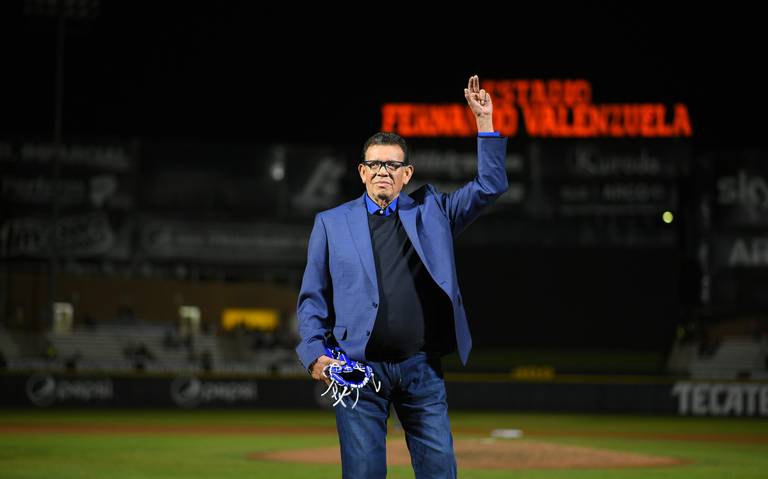
After his long MLB career, Valenzuela returned to Mexico and pitched for a few years in his 40s in the Mexican winter league. In 2003, he returned to the Dodgers to join the team’s Spanish-language broadcasts as a color commentator, and he became a U.S. citizen in 2015.
Forty-three years after his breakout season with the Dodgers, “The Bull of Etchohuaquila” reached the final inning of his life journey, prompting an outpouring of sadness and tributes on both sides of the Mexico-United States border.
“I think all Mexicans are sad due to the loss of Valenzuela,” President Claudia Sheinbaum said at her morning press conference on Wednesday.
“Our solidarity with his family and with all of Mexico,” she said.
With reports from AP, Reforma and The New York Times
